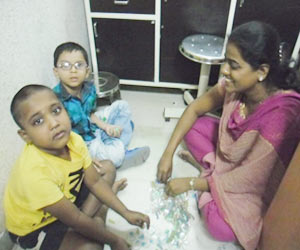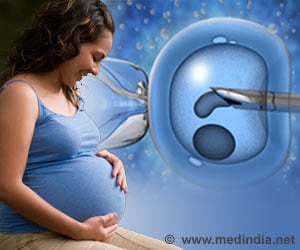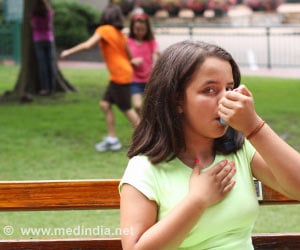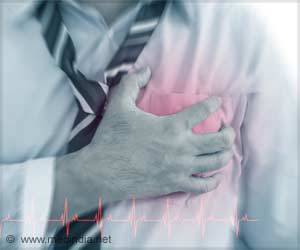The World Autism Awareness Day is celebrated on April 2nd 2016 with the theme ‘Inclusion and Neurodiversity’ to create awareness and integration into society.

- The Eighth World Autism Awareness Day 2016 is celebrated on April 2nd
- The theme for this year is ‘Inclusion and Neurodiversity’
- Autism is a developmental disorder which is growing in numbers across the world
- Boys are 5 times more likely to get autism than girls
- 1 in 66 children in India has autism
The Theme for 2016: Inclusion and Neurodiversity
The delayed developmental stages and the aversion towards social interactions alienate people with autism. However, people with autism have unique skills that can enrich our society, which is the focus of this year’s awareness campaigns: to actively include people with autism in the society and to recognise the diversity in neurological development.People with autism should be assured of the following in order to lead a stigma-free life.
- Quality Education: Special instructors may be required for people with autism.
- Right to Jobs and Economic Independence: Self-reliance will boost confidence and aid in better acceptance within society.
- Removal of Stigma: The stigma associated with autism should be removed to create a uniform platform for growth.
Autism is a Spectrum Disease
Autism is called a spectrum disease as the symptoms associated with this disease can range from being mild developmental delays to complex personality traits. A person with autism does not develop skills age appropriately. For example, a child may be 4 years of age, but may show language ability of a 2-year-old, and fine motor skills of a 6-year-old.Every individual with autism is different with different intellectual abilities. Many of them exhibit highly advanced intellectual abilities, which would deem the whole society at a loss if they are discriminated against.
The neurological condition leads to varying effects, which need to be understood to effectively support and include the individual in the society.
Effects of Autism
Autism affects the child’s ability in the areas of- Communication
- Cognition
- Intuition
- Imagination
- Socialization
- Interaction with people
The International Clinical Epidemiology Network Trust found these following statistics associated with India:
- More than 10 million children affected in India
- Between 1 to 1.5 percent autistic children are between the ages 2 to 9 in India
- The prevalence of autism in India is 1 in 66
Causes of Autism
- Genetic Factors: Autism generally runs in the family with brothers or sisters affected. Though the cause of autism has been linked to genes, the exact gene responsible for autism hasn’t yet been identified.
- Environmental Triggers: Apart from genetic factors, people with inherited faulty genes when exposed to certain environmental triggers could develop autism. The environmental triggers include premature birth, exposure to alcohol or medication like sodium valproate during pregnancy.
Health Conditions Associated with Autism
- Infantile Spasms -These are seizures that occur during the first year of a child’s life
- Down Syndrome - This condition is caused due to an additional copy of chromosome 21 and is associated with characteristic physical features and learning disability
- Fragile X Syndrome
- Neurofibromatosis (tumors on the nerve tissue)
- Muscular Dystrophy
- Rett Syndrome
- Congenital Rubella Syndrome
- Attention Deficit Hyperactivity Disorder (ADHD)
- Visual Impairment
Signs of Autism
Autism is difficult to detect early on in life, but these signs are generally used to recognize developmental delays.At 18 Months:
- Does not gaze out
- Prefers playing or being alone
- The child could be difficult to soothe
- Does not look for comforting or being picked up by an adult
- No non-verbal communication
- The child shows delayed language learning
- Is unable to communicate basic needs and desires
- Does not like being comforted, even when hurt
- The tone or language used may be unusual
- May fail to greet people
- Does not allow others to take turns while playing
- Does not gaze
- Fears something
- Shows difficulty in being toilet trained
- May show extreme emotion towards inanimate objects
- May follow a detailed procedure for certain tasks
- Does not show any attachment with people
- May say strange things
- May never initiate conversations
- Happy staying alone
- Highly uncomfortable in a social gathering
- Highly negative towards physical expression of love
Turn the Lights Blue
This World Autism Awareness Day 2016, people all over the world are requested to turn their lights blue to bring awareness to this developmental disorder. When people realize that children with autism react in a specific way as a result of symptoms of the condition, they will be more patient and empathetic towards the children. Managing autism is about sharpening skill areas that the child has a natural inclination towards.References:
- https://www.autismspeaks.org/what-autism/world-autism-awareness-day
- http://www.nhs.uk/Conditions/Autistic-spectrum-disorder/Pages/Causes.aspx
- http://www.autism-india.org/choosing-intervention.php
- http://unsdn.org/tag/world-autism-awareness-day/












